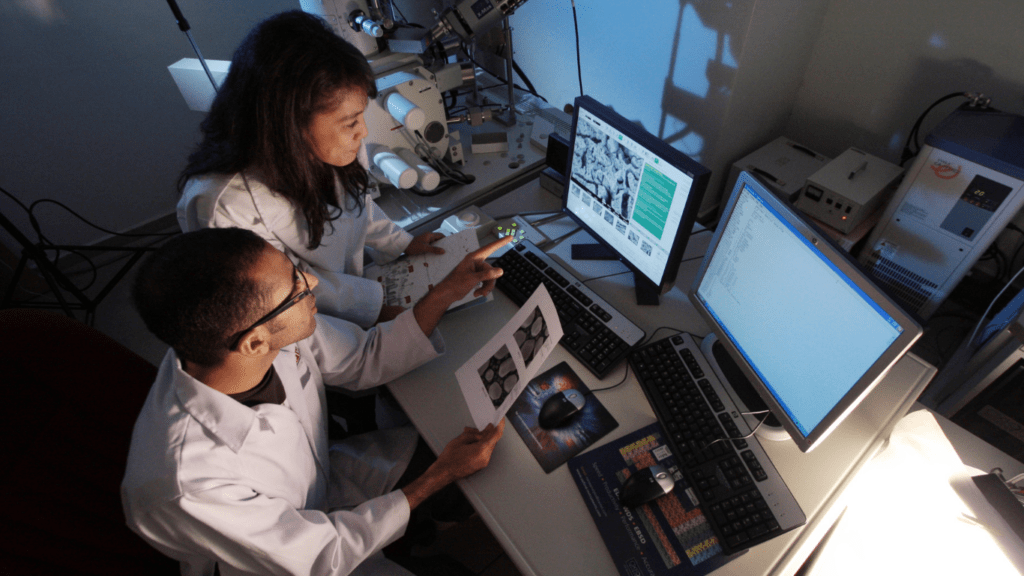Delving into the realm of mental health treatment, I’ve been captivated by the promising strides in psychedelic therapy. Recent studies have shed light on the potential of psychedelics in revolutionizing mental health care. The exploration of substances like psilocybin and MDMA unveils a new horizon for addressing conditions such as depression, PTSD, and anxiety.
As I navigate through the landscape of emerging research on psychedelic therapy, it’s evident that traditional approaches are being challenged by innovative perspectives. The profound impact of psychedelic-assisted therapy on individuals’ well-being is sparking a paradigm shift in the field of mental health. With growing interest and scientific backing, psychedelic therapy is poised to redefine treatment methodologies and offer hope to those in need.
In this article, we’ll journey through the latest findings and insights on psychedelic therapy, exploring its potential to transform the way we perceive and treat mental health disorders.
Overview of Psychedelic Therapy
Exploring the landscape of psychedelic therapy unveils a groundbreaking avenue in mental health treatment. Recent research initiatives have shed light on the transformative effects of substances such as psilocybin and MDMA in addressing mental health conditions like depression, PTSD, and anxiety. The burgeoning field of psychedelic-assisted therapy not only challenges conventional treatment methodologies but also heralds a new era in mental health care practices. With a surge in both public interest and scientific backing, psychedelic therapy is poised to revolutionize treatment modalities and offer a ray of hope to individuals grappling with mental health challenges.
Current State of Mental Health Treatments
Traditional therapies, although valuable, have limitations in effectively addressing certain mental health conditions. While talk therapy and medication have been pillars in treatment, they may not always provide profound and lasting benefits for everyone.
- Limitations of Traditional Therapies
In some cases, traditional therapies may offer temporary relief or symptom management without addressing the root causes of mental health disorders. Talk therapy, while beneficial for many, might have slower progress and may not always lead to significant breakthroughs. Medications, on the other hand, can come with side effects and may not be effective for all individuals.
- Shift in Perception towards Psychedelics
In recent years, there has been a notable shift in perception towards psychedelics as a viable treatment option for mental health conditions. The stigma surrounding these substances is gradually diminishing as research demonstrates their potential therapeutic benefits. Psychedelics are being viewed as catalysts for change in mental health care, offering new avenues for treatment that were previously unexplored.
Types of Psychedelics used in Therapy
I’ll delve into the specific types of psychedelics commonly utilized in therapy and their therapeutic potential.
Psilocybin
Psilocybin, found in certain species of mushrooms, is a key psychedelic compound investigated for its therapeutic properties. It has shown promise in treating various mental health conditions such as depression, anxiety, and PTSD. Research suggests that it can assist individuals in processing difficult emotions and experiences, leading to profound insights and personal growth.
MDMA
MDMA, also known as ecstasy, is another psychedelic substance gaining attention for its therapeutic benefits. It has demonstrated effectiveness in trauma-focused therapy, particularly for individuals with PTSD. MDMA-assisted therapy sessions aim to enhance the therapeutic process by promoting emotional openness, trust, and introspection. Studies indicate that MDMA can help individuals revisit traumatic memories in a safe and controlled environment, facilitating healing and emotional resolution.
Clinical Trials and Research Findings
Exploring the realm of psychedelic therapy reveals a landscape rich in clinical trials and compelling research findings. Studies examining the therapeutic benefits of substances like psilocybin and MDMA are shedding light on their potential to revolutionize mental health treatments. These trials challenge conventional practices and pave the way for a new approach in addressing mental health disorders.
In recent research findings, psilocybin and MDMA have emerged as promising tools in the treatment of various mental health conditions, including depression, anxiety, and PTSD. Researchers have observed that these substances can facilitate emotional processing, trigger profound insights, and foster healing within a carefully controlled environment. The results of these studies indicate a shift towards embracing psychedelics as a legitimate and effective therapeutic option.
The ongoing clinical trials and research endeavors in the field of psychedelic therapy are continuously unveiling new dimensions of its efficacy and safety. Insights gained from these studies not only highlight the potential of psychedelics in mental health treatment but also encourage a reevaluation of traditional approaches. As research progresses, the integration of psychedelic therapy into mainstream mental health care may offer novel solutions for individuals struggling with various mental health challenges.
Benefits of Psychedelic Therapy
Discussing the benefits of psychedelic therapy reveals compelling advantages that these treatments offer individuals struggling with mental health disorders. Psychedelics like psilocybin and MDMA have demonstrated remarkable potential in revolutionizing mental health care by providing unique advantages over traditional therapies.
Enhanced Emotional Processing
Improving emotional processing is a key benefit of psychedelic therapy. These substances allow individuals to delve deep into their emotions, facilitating the processing of complex feelings associated with trauma, depression, anxiety, and other mental health conditions.
Insight Generation
Psychedelic therapy promotes the generation of profound insights that can lead to transformative changes in thought patterns and behaviors. Individuals often experience heightened self-awareness and clarity, aiding in the resolution of underlying issues contributing to their mental health challenges.
Healing in a Controlled Setting
One of the critical benefits of psychedelic therapy is the ability to foster healing in a carefully controlled environment. The supportive setting provided during psychedelic sessions allows individuals to confront past traumas, confront their fears, and work towards emotional catharsis under the guidance of trained professionals.
Long-lasting Positive Effects
Research suggests that the benefits of psychedelic therapy extend far beyond the immediate treatment sessions. Many individuals report long-lasting positive effects, including reduced symptoms of depression, anxiety, and PTSD, improved overall well-being, and a greater sense of purpose and connection.
Promising Results in Clinical Trials
In recent years, clinical trials investigating the efficacy of psychedelic therapy have shown promising results. The data supports the use of substances like psilocybin and MDMA as effective tools for addressing mental health disorders, with many participants experiencing significant improvements in their symptoms and quality of life.
Potential for Treatment-Resistant Conditions
Psychedelic therapy offers hope for individuals with treatment-resistant mental health conditions. For those who have not responded to traditional therapies, psychedelics present a novel approach that can break through barriers and catalyze profound healing and transformation.
Overall, the benefits of psychedelic therapy are increasingly recognized in the mental health field, pointing towards a paradigm shift in treatment approaches and emphasizing the potential of these substances to reshape the landscape of mental health care.
Future Implications and Challenges
Exploring the future implications and challenges of psychedelic therapy reveals a promising yet complex landscape. As research progresses, it’s crucial to consider the following aspects:
- Regulation and Legalization:
Navigating the legal and regulatory frameworks surrounding psychedelic therapy presents a significant challenge. As promising results emerge, policymakers and regulatory bodies face the task of creating frameworks that ensure safe access while mitigating potential risks. - Public Perception and Stigma:
Overcoming public stigma and misconceptions surrounding psychedelic therapy remains a critical hurdle. Educating the public about the therapeutic potential of these substances is essential for broader acceptance and integration into mainstream mental health care. - Accessibility and Affordability:
Ensuring equitable access to psychedelic therapy is essential for its widespread adoption. Addressing affordability issues and expanding access to marginalized communities are crucial steps in maximizing the benefits of psychedelic-assisted treatments. - Ethical Considerations:
Ethical standards and guidelines for conducting psychedelic therapy require careful attention. Maintaining patient safety, confidentiality, and informed consent are paramount to uphold the integrity and effectiveness of psychedelic treatments. - Integration into Mental Health Care Systems:
Integrating psychedelic therapy into existing mental health care systems poses a significant challenge. Coordinating with healthcare providers, training professionals, and establishing clear protocols are essential steps in mainstreaming psychedelic-assisted treatments.
Anticipating and addressing these implications and challenges will be instrumental in realizing the full potential of psychedelic therapy in revolutionizing mental health care. By proactively engaging with these issues, we can pave the way for a more comprehensive and inclusive approach to mental health treatment.


